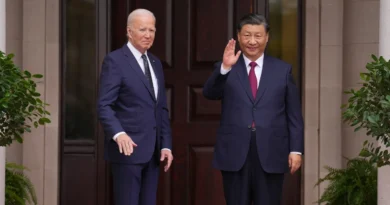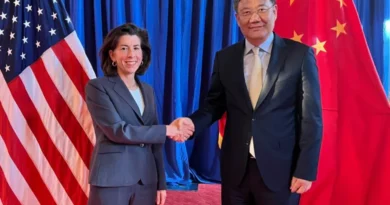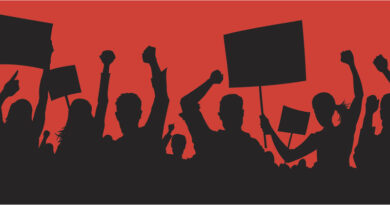In Argentina, the 'everyone leave' of 2001 is the 'don't fuck with me anymore' of now
CECILIA VALDEZ
The possibility of the extreme right in power in Argentina, with Javier Milei at the head - a scenario that will be finalized on November 19 - forces us to navigate other depths. Whether the far-right Javier Milei wins or the ruling party Sergio Massa wins, the surprise that Milei's emergence caused speaks of something else.
Without going any further, of tired silent majorities and a profound indifference with a policy that does not challenge them, something that the sociologist Leandro Barttolotta has been mentioning in his studies for a long time and that, in his own words, requires in-depth research before quick diagnoses. This year Barttolota has published, together with Ignacio Gago, the book: “Notes on implosion. The social issue in precariousness” (Editorial Tinta Limón).
You make a differentiation between what is a social outbreak like that of 2001, and a process of social implosion like the one that Argentine society is going through today, what are you referring to?
This has to do with the reflections that appear in the book, and are notes on the social issue of precariousness. The idea is to think about the transformations of what we call the imploded social, or imploding, always making it clear that it is a process that is happening, and not something closed. It is also an invitation to investigate what happens to the social situation with precariousness in the background, and one of the bets was to get away from that imaginary picture of double income in which there is, on the one hand, the explosion, and on the other, the implosion. . What it seems to us is that when we talk about a social outbreak, we inevitably call up a catalog of images that respond to a system of militant political expectations or even, from the point of view of the State, we relate it to the economic issue, the chaos, but there are always images of public spaces, of protest, of social conflict, related to issues of repression in the street. We do not deny the possibility of a social explosion of these characteristics, or of new versions that may occur, but what it seems to us is that what is already happening is a social implosion, that social thing that becomes increasingly denser, thicker and violent.
What can be done with that?
First it is necessary to investigate, for us it is important to do a kind of emotional sociology of the popular majorities. Get rid of that notion of the economic, or of chaos, that serves to generate diagnoses or closed images, and begin to investigate what is happening in the minds of these popular majorities, of that social implode, or imploding. Try to do a more precise job in perceptive terms, because there is a habit or a certain way of thinking about politics, in which the social appears as a homogeneous whole represented as a kind of mass that is not thought of, and that is always subsidiary. of a political statement that is tried and tested in what is called the social.
How would you define social implosion?
The imploded social shows that there is increasingly a notion of explosion, but inwards. Inside a neighborhood, inside an institution, inside, even the body skin inside; It's more like a shock wave, but tucked inward. As for how it manifests itself, that is one of the key questions that drives the research, because what we say is that there is an ear or a listening system that immediately detects what the screams are or what the loudest manifestations of the social, but when it comes to social implosion, or the imploded social, we have to investigate and we have to listen on a more whispering level, even listening to what happens behind what certain political listening sees as silence.
There is something very common, and which is quite illustrative, and that is that, in a neighborhood, in an institution or in any social situation, when asked how things are, they tell you: everything is quiet, or nothing is happening. Nothing happens in that one, there is everything. There we must, inevitably, refine our listening, try to see and think, and approach it with another type of writing and language, because there are a lot of issues that happen daily, such as low mood, increase in suicides, and new, disturbing violence. and disturbing. The spontaneous level of sociability seems to respond to logic that is not usual. There is also something about the preponderance that the question of fatigue, of the tired body, acquires, which is something to which we give a lot of importance, something that we do not really know what it is filled with.
So the problem is that we are trying to read all this happening with old logic?
Yes, and the problem with those old logics, or with that older system of expectations, is that, instead of staying in a position of attentive listening to what appears disturbing and new, what it does is try to take it to the known. and again. That is why this research we do invites mapping, and not closing ourselves in quick diagnoses because there you run the risk of creating a new logic that tries to explain everything that happens, and what is happening has a lot of confusion, of chaos. It also seems to us that it is important to try to think about precariousness “a la Argentina”, and develop a genealogy of precariousness.
Phenomena like Milei's, or what is happening these days of so much fear and so much expectation, are explained much more by what is happening with the popular country, and within those transformations of the popular majorities, of that social implosion, which by very global agendas or discourses. This is explained much more by what inflation is, as a war against popular lives, than by another issue of right-wing ideologies at a global level. Of course there will be a percentage of that, but before a right-wing society, we see a society tired by the level of hyperdemand that implies having to deal daily with adjustment and inflation, more than by other types of discourses, or categories, that Sometimes, quickly and for export, they try to explain what is happening.
So, instead of demanding mobilization from popular majorities materially tired by their living conditions, what it is about is extracting vectors of social fatigue, allowing that body to breathe, and trying to ensure that it has fewer worries.
What can happen with a possible victory for Milei?
We know that each of those terrors that a precarious society implies can be intensified with a Milei government, and that all those networks and all those mediations, even in a time of such precariousness as this, can disappear. That is what can be foreseen with the right returning to the palace, then there is everything that is unprecedented and that, generally, and due to the history of this country, is not only worrying, but is going to intensify and is going to be loaded with violence that war against popular lives. It seems to me that what is in dispute is a notion of a popular and plebeian homeland, and not a notion of Argentina. The issue of living in an open-air prison also made politics become another vector of fatigue, or indifference, for many people.
And do you think that due to the characteristics of this process - which you describe as silent and that it vibrates under a sound barrier - that we didn't see it coming?
It is complex, beyond the unforeseeable, and the figure of Milei, what could be seen is that before a crisis of political representation what there is is a crisis of perception, that is, what is happening is not being perceived. with the popular majorities. During all this time there was a kind of split between a society that was in its own, but not in its own in derogatory terms, but in charge of managing a lot of variables to make it not only to the end of the month, but to the end of the day, and a policy that was in any way, in a bubble logic with a permanent plenary or open-air internal agenda, which increasingly moved further away from what was happening with the popular majorities, from the effects of the pandemic, from the effects of inflation, etc.
There is also a difficulty in trying to think about the lives of working kids who have not been investigated for years, who are young voters and who are clearly in a situation of orphanhood. Now politics is quickly trying to understand this from an electoral situation, and make a hasty electoral diagnosis of something extremely complex.
You said that the imploded social devours politics, but when they speak from anti-politics, or when Milei claims to be an outsider, there is something that catches on with these popular majorities, right?
We said in the analyzes that were carried out after the elections, especially after the primaries, that we did not agree with assigning intentions, and talking about a right-wing, apolitical society, etc. After the primaries there was talk of a punishment vote, and after the general elections of a hope vote, how can it be? What happens is constantly codified and attempts are made to generate very emphatic and very closed diagnoses, which try to explain everything instead of investigating what is happening. Even speeches that present themselves as anti-politics continue to be read as politics, and they continue to enter that vector that is politics and that is something distant.
What is happening these days with the ballot is something else, it has another dynamic, there is some spontaneous and inevitable politicization of a society due to the same logic that this mode of election has. But regarding what happened in the primaries and the general elections, there is a kind of electoral political calendar that lasts 48 hours for the popular majorities. That is to say, a few hours before going to vote the vote is decided in a family chat or with friends, so each person is more or less watching; and then, on Monday morning or Sunday night, you see the result and to continue in that continuum, that is what the electoral calendar is reduced to for a large part of society.
In front of us there is an over-interpretation, diagnoses, and hours and hours of editorials that later do not translate into the daily reality of a large part of the population. What was effective was the fear campaign with the SUBE card (transport card), which when you supported the card it told you what you pay now and what you could pay without the State subsidy. Now that is a puncture that intensifies a terror that you already have, because of how you travel, because of the prices, etc. There it touches on something very concrete that immediately activates those popular lives, but the idea of electoralizing any type of situation is a mistake.
Does that have to do with the differentiation you make between the 'let everyone go' from 2001 with the 'don't fuck with me anymore' from now?
Yes, and that is a question that many times we are not asked and we think it is important because we do not believe, as it appeared very editorialized, that 'let them all leave' is now expressed by Milei, as if it is a kind of electoralized 2001. It seems to us that the true passage from 'let everyone leave' to 'don't screw me anymore' involves a question of rejection of politics that is seen as another vector of annoyance, fatigue and social noise. Just as they say, don't screw me anymore with politics, they can say, don't screw me anymore with insecurity, with the neighbor, with the kid who is playing loud music, etc.
That 'don't fuck with me anymore' speaks much more about the emotional tone of the popular majorities, and fatigue, than about a very armed and codified rejection of politics. What is underlying is that, sometimes, the discourse of anti-politics is very useful to those who from politics continue to talk about politics, feed the bubble, and it remains there as a kind of closed circle. This is seen when surveys are done and people are asked, because the truth is that what comes out is not mostly right-wing ideologies, even with respect to the notion of the public. But it is necessary to pierce that plane, not to look at what is happening, but to really investigate these popular majorities and from there think about what place politics occupies for someone who is constantly threatened by inflation, and by a lot of vectors that they unsettle.
Of course, all these terrors can be intensified and taken to unimaginable places, in terms of possible social hells, with Milei's rise to power.












